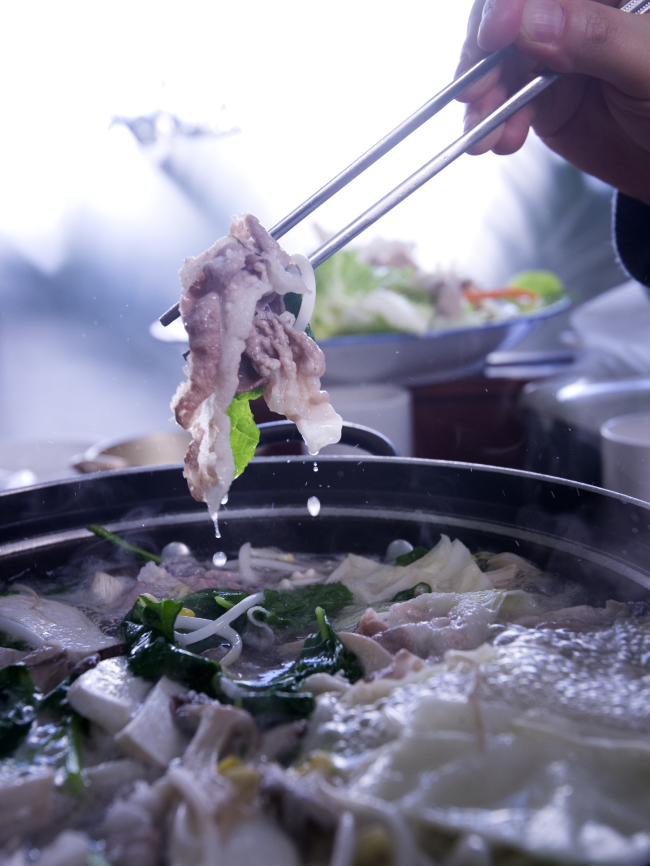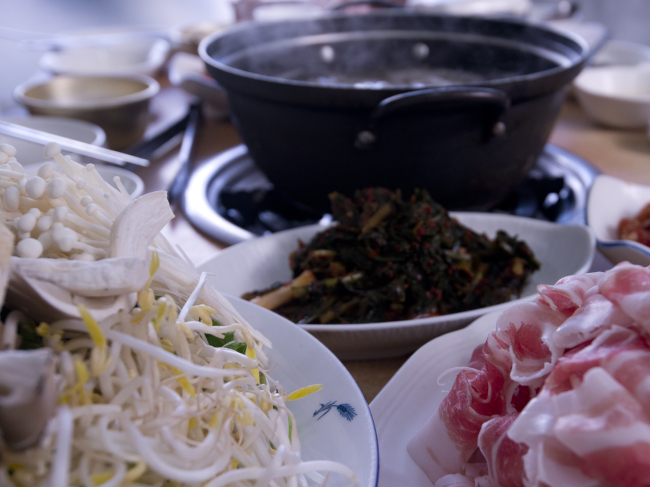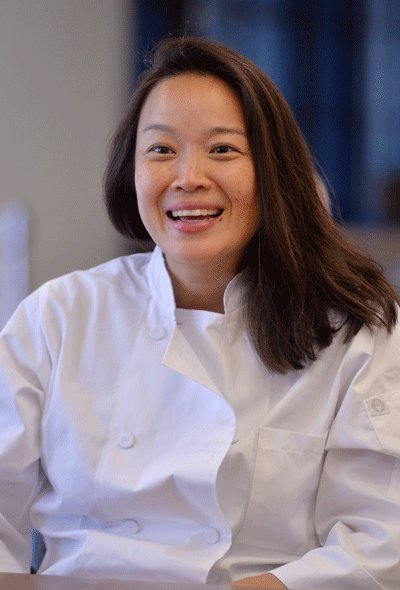Christine Cho, a Korean-American expat in Seoul, has been eating and cooking her way around the world for 16 years as a private chef. -- Ed.
The list is long as to what one should eat on Jejudo Island as a visitor, but it is a top culinary destination. Some of the most flavorful fruits and vegetables in the country grow on the island and it is prized for its Jeju black pigs and the abundance of seafood from the surrounding waters.
Jeju black pig is a heritage breed indigenous to the island and prized for its superior quality of flavor and texture. Often priced higher for this distinction, it often still has traces of black hair as proof of its origin. Bossam and samgeopsal are classic Korean pork dishes found on many Korean menus, but on Jeju Island, Cho Bak Sa Shabu Shabu Restaurant showcases local pork in a unique shabu shabu style which accentuates its delicate quality in the most impressive way.
Cho Bak Sa Shabu Shabu is owned by a couple who met in the kitchen at The Shilla Jeju Hotel. They opened their restaurant 11 years ago just minutes away from the Jeju International Airport in Jeju City. Cho Bak Sa Shabu Shabu can easily become one’s first meal upon arriving on the island and a truly deliciously one at that.
Tables are set with large woven baskets of cabbage, mushrooms, bean sprouts and greens bought at a local marketplace. Platters of perfectly shaved coils of Jeju black pork from the Samyang area showcase the freshness of the flesh and fat in its naturally beautiful ribbon pattern.
 |
Thinly sliced pieces of Jeju black pork are cooked shabu shabu-style in a 20-ingredient sea vegetable broth with locally grown vegetables. (Rupert Lorhaldar/8design8) |
At the center of each table is a pot of simmering hot broth made from over 20 different natural ingredients from land and sea vegetation. Both pork and vegetables are added to the pot of broth at one’s leisure and the lightly cooked ingredients are enjoyed by dipping them into a delightful wasabi mustard vinegar dipping sauce.
The thinly sliced pieces of pork are buttery, subtly fragrant and a pleasure to eat with vegetables and sauce. Even after 10 or so bites one barely fills up, unlike the heavy aggressive way one may feel eating regular pork. The broth surprisingly shows little remnants of grease or fat.
To round off the meal, homemade wheat and mugwort flour noodles are added to the reduced and low simmering broth to create one last hurrah. The perfect complement to the dish has to be local Jeju makgeolli.
The charm of the restaurant are the gracious owners who are happily willing to serve their tables with non-stop complimentary baskets of vegetables and pride themselves on their generous portions and sustaining their distinct flavor year after year.
 |
The table setting at Cho Bak Sa Shabu Shabu abounds with ribbons of shaved pork, homemade aged yeolmu kimchi, and never-ending complimentary baskets of local vegetables. (Rupert Lorhaldar/ 8design8) |
Unlike some Korean restaurants, especially in more rural parts of Korea, where one may feel an abrupt or cold welcome, Cho Bak Sa Shabu Shabu truly welcomes their guests with a happy disposition that complements the meal and the warm Jeju sunshine coming through the windows.
Cho Bak Sa Shabu-Shabu
Jeju Special Self-Governing Province, Jeju City, 10 Daranggot gil 10 (Nohyeong-dong), Jeju Si, Jeju-do
Tel: ( 064)746-8668 Cell Phone: (010) 6772-2757
Hours: 11 a.m. – 8 p.m.
Price: 5,000 won – 11,000 won
Recommended Dishes: Pork shabu shabu, clam noodle soup, spicy mushroom kalguksu

By Christine Cho (thepalate@gmail.com)










